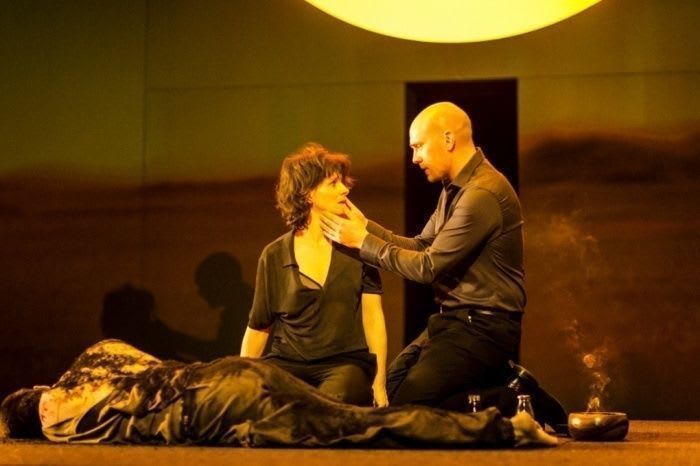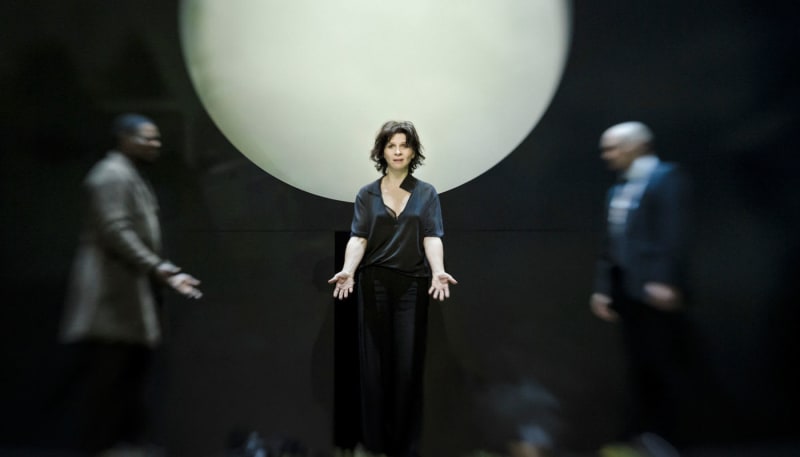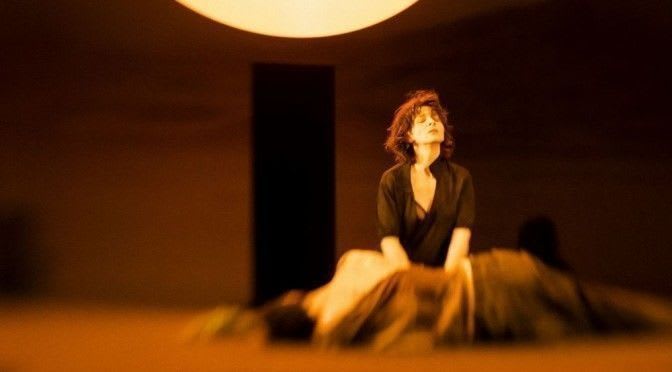Ivo van Hove has long been popular on the continent but his British breakthrough has been more recent, despite previous outings at the Barbican.
The Netherlands-based director's brand of decontextualised, contemporary renditions of the classics met with widespread critical and popular acclaim when he directed a stripped-down version of Arthur Miller's A View from the Bridge at the Young Vic, which is currently running in the West End.
He uses many of the same values in this equally stark version of Sophokles (sic), translated with a modern slant and poetic rhythm by Anne Carson.
The stage is backed by a large screen, dominated by the sun and showing slow-motion images that are frequently beautiful. The relevance can be more difficult to divine, though the opening sandstorm sets the 100 minutes off in fine style.
Juliette Binoche plays the title role with deep feeling, mourning the loss of a much-loved brother Polyneikes and refusing the entreaties of their sister, Kirsty Bushell's Ismene, to toe the line.
That is laid down by Patrick O'Kane as King Kreon, their uncle. Showing considerable political nous, in the fashion of his successors around the world today, the ruler refuses to allow the body of his nephew-enemy to be buried, an act that would have damaging symbolic significance.
This sets in train a battle to the Greek tragic death that has a good few twists and turns before the sun finally sets on a saddened and much diminished group.
For much of the evening, the protagonists sit or stand in what appears to be a modern office or living room addressing the audience but completely ignoring those to whom one might have expected them to speak in a conventional production.
This can be disconcerting and, together with the use of microphones which mean that sound is not necessarily coming from the direction of the person speaking, sometimes leads to disconnection or even confusion.
On the plus side, this does mean that exceptionally when two characters do come head-to-head, in one case spectacularly as Kreon tries to persuade his son Samuel Edward-Cook's Haiman to do the right thing, the play erupts.
Miss Binoche rises to the occasion as the wronged, passionate Antigone, while O'Kane is a good foil. Amongst a number of strong supporting performances, Finbar Lynch is probably the pick as the seer Teiresias, a man who knows his own power and bravely opposes the King, if only to make him see sense.
On the day of the opening of this co-production between the Barbican and Les Théâtres de la Ville de Luxembourg, in association with Toneelgroep Amsterdam that will be touring the world, it was announced that the BBC will also be broadcasting a performance in the spring.
There is a strong possibility that Ivo van Hove's aesthetic will work perfectly for the camera, offering opportunities for exciting close-ups and real engagement with the subject matter that can never be shared in a large theatre.


